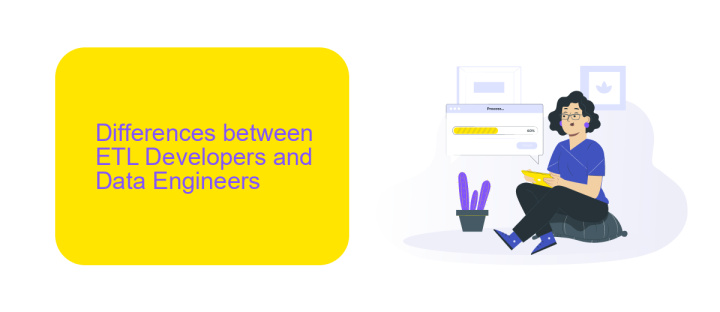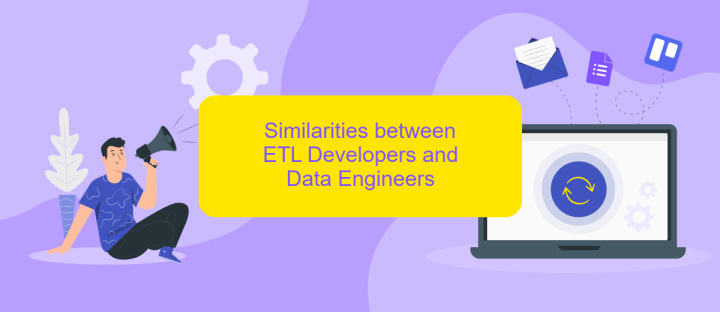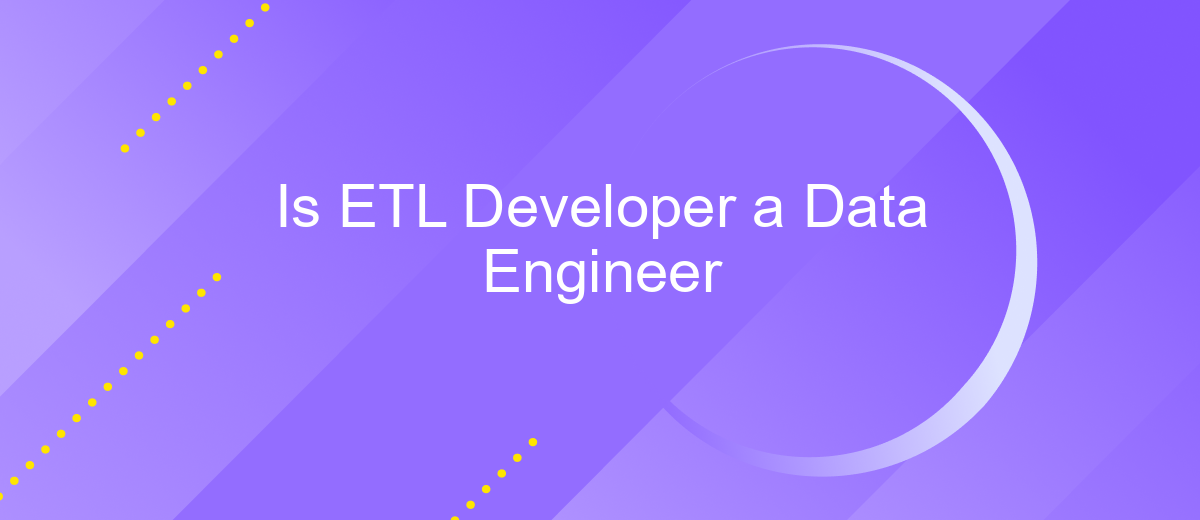Is ETL Developer a Data Engineer
The roles of ETL Developer and Data Engineer often overlap, leading to confusion about their distinctions. While both professionals handle data extraction, transformation, and loading processes, their responsibilities and skill sets can differ significantly. This article explores the nuances between ETL Developers and Data Engineers, shedding light on their unique contributions to the data management landscape.
ETL and Data Engineering Overview
ETL (Extract, Transform, Load) and data engineering are critical components in the data lifecycle, ensuring that data is collected, processed, and made available for analysis. ETL developers focus on creating pipelines to extract data from various sources, transform it into a usable format, and load it into data warehouses or other storage systems. These processes are essential for businesses to make data-driven decisions.
- Extraction: Gathering data from multiple sources such as databases, APIs, or flat files.
- Transformation: Converting data into a consistent format, including cleaning, filtering, and aggregating.
- Loading: Inserting the transformed data into a target storage system like a data warehouse or data lake.
Data engineers, on the other hand, design and manage the infrastructure that supports these data pipelines. They ensure scalability, reliability, and efficiency of data workflows. Tools like ApiX-Drive can simplify the integration process by automating data transfers between various platforms, thus aiding both ETL developers and data engineers in their tasks. By leveraging such services, organizations can streamline their data operations and focus more on deriving insights rather than managing data logistics.
Differences between ETL Developers and Data Engineers

ETL Developers and Data Engineers, while often working in overlapping domains, have distinct roles and responsibilities within the data management ecosystem. ETL Developers primarily focus on designing, developing, and maintaining ETL (Extract, Transform, Load) processes. They ensure that data is accurately extracted from various sources, transformed into a suitable format, and loaded into data warehouses or databases. Their expertise lies in scripting, data mapping, and using ETL tools to automate data workflows. For instance, services like ApiX-Drive can facilitate seamless integrations and automate data transfers, making the ETL process more efficient.
On the other hand, Data Engineers have a broader scope. They are responsible for building and maintaining the entire data infrastructure, which includes databases, data warehouses, and data pipelines. They ensure that the data architecture is scalable, reliable, and optimized for performance. Data Engineers work closely with data scientists and analysts to provide the necessary data for analysis and reporting. They utilize a variety of tools and technologies, including big data platforms, cloud services, and programming languages, to manage and process large volumes of data. While ETL is a part of their responsibilities, their role extends beyond to encompass the entire data lifecycle.
Similarities between ETL Developers and Data Engineers

ETL Developers and Data Engineers share several commonalities in their roles, primarily focused on data management and pipeline creation. Both positions require a strong understanding of data architecture and the ability to work with large datasets efficiently.
- Data Integration: Both ETL Developers and Data Engineers are responsible for integrating data from various sources, ensuring seamless data flow across systems. Tools like ApiX-Drive can be instrumental in setting up these integrations.
- Data Transformation: They both perform data transformation tasks, converting raw data into usable formats for analysis and reporting.
- Programming Skills: Proficiency in programming languages such as SQL, Python, and Java is essential for both roles to manipulate and manage data effectively.
- Data Quality: Ensuring data accuracy, consistency, and reliability is a key responsibility shared by both ETL Developers and Data Engineers.
In summary, while ETL Developers and Data Engineers may have distinct job titles, their core responsibilities often overlap significantly. They both play crucial roles in the data lifecycle, from extraction and transformation to integration and quality assurance, making them indispensable in any data-driven organization.
Career Paths for ETL Developers and Data Engineers

ETL Developers and Data Engineers both play crucial roles in managing and transforming data, but their career paths can diverge significantly. ETL Developers often start their careers focusing on data extraction, transformation, and loading processes, and may advance to roles such as ETL Architect or Data Integration Specialist.
On the other hand, Data Engineers typically begin with a broader focus on designing and implementing the infrastructure for data generation, collection, and storage. As they gain experience, they might move into roles like Data Architect, Data Platform Engineer, or even Chief Data Officer.
- ETL Developer: Junior ETL Developer, Senior ETL Developer, ETL Architect
- Data Engineer: Junior Data Engineer, Senior Data Engineer, Data Architect
Both career paths offer opportunities for specialization and advancement. For instance, tools like ApiX-Drive can be invaluable for ETL Developers looking to streamline data integration processes. Data Engineers might focus on optimizing data pipelines and ensuring data quality. Regardless of the path chosen, both roles are essential in the evolving field of data management.
Conclusion
In conclusion, the roles of ETL Developers and Data Engineers, while overlapping in some areas, have distinct responsibilities and skill sets. ETL Developers primarily focus on extracting, transforming, and loading data, ensuring that data flows smoothly from source to destination. On the other hand, Data Engineers design and build the infrastructure required for data generation, ensuring that data is accessible, reliable, and optimized for analysis. Both roles are crucial in the data ecosystem, but their contributions are unique and complementary.
As organizations continue to integrate various data sources and tools, services like ApiX-Drive become invaluable. ApiX-Drive simplifies the process of setting up integrations, allowing both ETL Developers and Data Engineers to streamline data workflows and focus on their core tasks. By leveraging such tools, businesses can enhance their data operations, ensuring that data is efficiently managed and utilized for strategic decision-making. Ultimately, understanding the nuances between these roles helps in better resource allocation and achieving more robust data management practices.
FAQ
Is an ETL Developer the same as a Data Engineer?
What skills are essential for an ETL Developer?
Can an ETL Developer transition to a Data Engineer role?
What tools do Data Engineers commonly use?
How can automation tools help ETL Developers?
Strive to take your business to the next level, achieve your goals faster and more efficiently? Apix-Drive is your reliable assistant for these tasks. An online service and application connector will help you automate key business processes and get rid of the routine. You and your employees will free up time for important core tasks. Try Apix-Drive features for free to see the effectiveness of the online connector for yourself.

